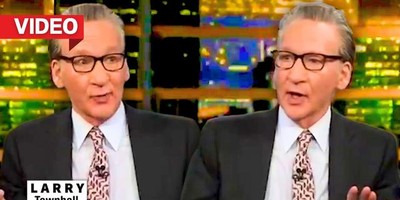Writer Linton Weeks of National Public Radio recently authored a column entitled “Media Black Hole: So Much News That We'll Implode?” in which Weeks examined whether the wealth of information was actually causing consumers to become less informed.
To help readers comb through the massive flow of information, content curators have cropped up all over the political map, among the most influential the Drudge Report and the Huffington Post. Popular regional curators such as FlashReport in California provide a valuable source of information to politicos in their respective areas. By aggregating compelling news stories and information, knowing their audience and then curating only the most relevant stories, such web sites have become key influencers in policy debates. After all, politicians and their staff make decisions based upon the information they consume and what they perceive as the hottest topics.
Crowd sourcing is the grassroots version of content curating. Using their “Share” button on Facebook, any individual can determine what stories are important for others to read.
Steven Rosenbaum, the author of Curation Nation: How to Win in a World Where Consumers Are Creators, explains the power of individual content curators in the age of information overload: "The world of curation will have lots of brand-name, well-known curators you know and trust. The new media moguls won't be makers, they'll be finders, endorsers and presenters."
Like web site content curators and media outlets, elected representatives are seen by the public as disseminators of important information. But few politicians have the time or resources to work full time scouring the news for relevant information or keeping track of every Internet mention about key policy topics, or respond to constituents’ needs via social media.
Recommended
Since necessity is the mother of invention, several new technology tools have been developed to meet this new need. Content curation software StoryCrawler is fast becoming an all-in-one tool for businesses and elected officials.
“The idea of StoryCrawler is simple,” explains CEO Denny Dansereau. “We recognized that information consumers were struggling with taking in all this information on the Internet, processing it and using it. Our software allows users to track topics of interest across the Internet, Facebook, Twitter, etc. They can select, order, and add their own commentary to create personally curated content relevant to their needs and their audience. The results can then be shared across multiple platforms such as blogs, social media sites, smart phone apps, and e-newsletters.”
The political ramifications for such a tool could lead to yet another dramatic revolution in voter targeting, GOTV, and galvanizing public support for legislative efforts. For instance, with a content curation software, a candidate or politician can track in real-time not only what’s being said about him or her, but their political opponents as well.
The business community has already figured out that if you aren’t engaged in social media marketing, you’re behind the times. Such intimate interaction between businesses and customers has opened up an entire new field: content marketing and content curation. Instead of simply pushing a brand message, a conversation is taking place between the business and customer. If the consumer feels the business is a trusted source of information, they will be much more inclined to not only purchase, but remain a loyal customer.
The same could hold true for politicians—even more so because they are directly accountable to the people to represent their interests so a conversation that builds trust is critical. Content curation and social media marketing become crucial to informing and building trust.
For politicians, if you’re not engaged, you’re missing out on the most effective way to communicate with constituents and voters. Expensive TV and radio ads, irritating robo-calls or glossy snail mailers may still be an integral part of any campaign. But social media has become an essential, if not core, aspect of any campaign. Can you imagine a politician without a web site? Not too long ago, none of them had it. Now, they’re ubiquitous. With the advent of social media, a politician’s presence on multiple platforms is critical.
Anne McGraw with the web site AllTwitter.com explains it this way: “…Twitter is like a 24/7 news channel, and you’re either saying “no comment” to the journalists who are doing a story on your company/industry or you’re actively participating in the conversation. The discussion is going to take place whether you’re in it or not – more than likely with competitors taking part – and you have a choice: monitor and participate in the stories, or watch them go by without contributing your opinion and expertise.”
That same logic applies to all social media platforms. If you’re not active, engaged, and participating, you aren’t part of the conversation. And that can mean the winning or losing margin in an election or public policy debate.
























Join the conversation as a VIP Member